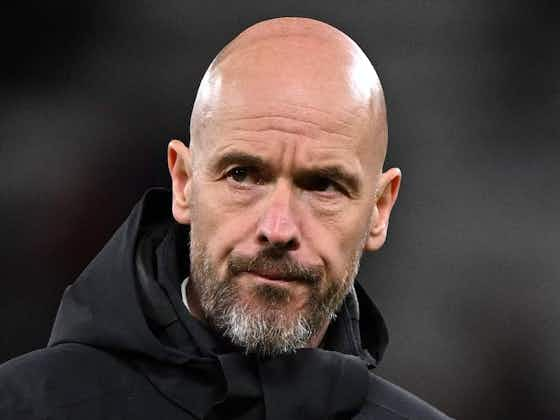The Peoples Person
·16 June 2024
Why are Ineos even considering giving Erik ten Hag a new contract?

In partnership with
Yahoo sportsThe Peoples Person
·16 June 2024

Could we address the elephant in the room – why are Ineos giving Erik ten Hag a new contract?
Nobody could have come closer to losing his job than the Dutchman this summer, with Ineos reportedly interviewing at least five candidates to replace him. In truth, the reason he is still in a job is that none of the available candidates truly convinced Ineos, or vice versa.
Another reason mentioned in the press for Ineos’ reticence to pull the plug was that it would cost them millions in compensation to sack Ten Hag, given that he still had over a year on his contract, which expires on June 30th of next year.
Had Thomas Tuchel, for example, not flunked his interview, or had Xabi Alonso, for example, been available, would Ten Hag still be in post? Probably not. Will Ineos hesitate in pulling the plug if United start 2024/25 in a similar chaotic vein to that which they operated in 2023/24?
Surely this is a man on his last lifeline.
Yet, if the media is to be believed, Ineos are about to reward the Haaksbergen man with a new two-year contract. Not only that, but the press is awash with stories about how Ten Hag is now in the driving seat, that he will demand a huge compensation package should he be sacked and all sorts of other privileges.
What is the logic of this? The only explanation that makes any kind of sense is that without that vote of confidence, Ten Hag’s authority will be undermined with the players.
There are problems with that reasoning, though. First, the players have proven themselves to disrespect various managers regardless of the length of contract they hold. Second, they all know – unless they live under a stone – how close he came to losing his job and how untenable his position would be were they to down tools. Do they care about the length of his contract? They care not a jot.
The Telegraph claims that “a two-year extension to 2027 would be Ten Hag’s expectation rather than just an additional year. It is unclear if Ineos would raise the prospect of a break clause in any longer-term agreement.”
But why not wait until Christmas, say, to start negotiations about a new deal? It is highly unlikely Ten Hag will be headhunted and offered a bigger salary than he receives at Old Trafford in the meantime. And if he is, well heck, is it that much of a calamity, if we were that close to sacking him anyway?
If Ineos are adamant that a new contract is needed at this stage, then they should at least include that break clause that The Telegraph mentioned. And it should not be performance-based. If, for example, a top four finish is needed to secure continuity of the contract, then firstly it would not be enforceable until another season has passed by and secondly if United somehow managed to sneak into the top four playing horrible football, Ten Hag’s contract would have to be paid out in full.
An affordable fixed pay-off figure applicable under any circumstances is surely a must-have for Ineos, perhaps around three or six months’ salary.
In addition, Ten Hag should not be given power of veto over transfers. Ineos are building a squad, and it will be his job to do his work with the squad provided.
In that sense, any new contract might be better with a new job title of head coach rather than manager.
Ineos should also have control over the appointment of coaches. It has been reported that Ten Hag will insist that Benni McCarthy and Mitchell van der Gaag, for example, are kept on despite Ineos preferring to replace them. The director of football should make these appointments, not the head coach.
And finally, the contract should make it clear that Ineos can instruct Ten Hag to employ a particular overarching style (or “game model” as The Telegraph calls it). For example, he would not be able to continue his transitional approach if his superiors want to play a different style.
Of course, as suggested above, all this could be avoided, for now at least, if a new contract was simply not offered at this stage. Trust has to be earned, not given, and the same goes for lucrative managerial contracts.
Want to be the first to hear breaking Man United news? For carefully selected, crucial updates, join our WhatsApp channel: https://bit.ly/United-Breaking-News.






























































